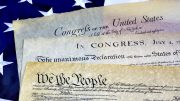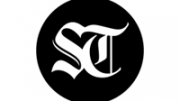Sixteen of the world’s largest banks including JPMorgan Chase & Co. and Citigroup Inc. must face antitrust lawsuits accusing them of hurting investors who bought securities tied to Libor by rigging an interest-rate benchmark, a ruling that an appeals court warned could devastate them.
The appellate judges reversed a lower-court ruling on one issue — whether the investors had adequately claimed in their complaints to have been harmed — while sending the cases back for the judge to consider another issue: whether the plaintiffs are the proper parties to sue, in part because their claims, if successful, provide for triple damages that could overwhelm the banks.
“Requiring the banks to pay treble damages to every plaintiff who ended up on the wrong side of an independent Libor‐denominated derivative swap would, if appellants’ allegations were proved at trial, not only bankrupt 16 of the world’s most important financial institutions, but also vastly extend the potential scope of antitrust liability in myriad markets where derivative instruments have proliferated,” the U.S. Court of Appeals in New York said in the ruling.
Bank of America Corp., HSBC Holdings Plc, Barclays Plc, Credit Suisse Group AG, Deutsche Bank AG, Royal Bank of Canada and Royal Bank of Scotland Group Plc are also among the banks sued in Manhattan.
Libor Fines
About a dozen firms have paid almost $9 billion in fines to resolve government investigations around the world into rigging of the key benchmark. Libor is used to set interest rates for trillions of dollars financial instruments. The ruling by a three-judge panel opens the possibility the banks may have to pay billions more.
Michael A. Carrier, a professor at Rutgers Law School in Camden, New Jersey, said the ruling was “extremely important” because of the threat to the banks. Any kind of price manipulation by competitors is treated very seriously under U.S. antitrust law, he said.
The 24-company KBW Bank Index fell 0.3 percent Monday, bringing its decline for the year to 6.1 percent.
Antitrust Claim
The appeals court overturned a 2013 ruling by U.S. District Judge Naomi Reice Buchwald who said the investors had failed to show that they were harmed in a way that would permit them to sue under U.S. antitrust law.
In their lawsuits, the plaintiffs claim that beginning in 2007 the banks colluded to depress the Libor rate to minimize the amount they had to pay out on investments linked to the benchmark. The Libor-tied investments included asset swaps, collateralized debt obligations and forward rate agreements.
Buchwald may still throw out the cases if she determines the plaintiffs aren’t the appropriate parties to sue — or, as antitrust law puts it, “efficient enforcers.” That could be because their potential damages are too speculative or too hard to calculate or for some other reason. The court also highlighted the risk that civil litigation could duplicate the fines and settlements imposed by government regulators.
“This is far from a home run for the plaintiffs,” said Carrier. “But it does allow them to go forward with the case.”
Government Enforcement
The ruling was unanimous, although only two appeals court judges joined the portion that instructed Buchwald to consider whether the plaintiffs are appropriate parties to sue. The two judges pointed to numerous enforcement actions involving Libor as they returned the case to the lower court.
“There are many other enforcement mechanisms at work here,” the two said in an opinion written by Judge Dennis Jacobs. “In addition to the plaintiffs in the numerous lawsuits consolidated here, the banks’ conduct is under scrutiny by government organs, bank regulators and financial regulators in a considerable number of countries.
Lawrence Grayson, a spokesman for the Charlotte, North Carolina-based Bank of America; Andrew Gray, a spokesman for JPMorgan; and Danielle Romero-Apsilos, a Citigroup spokeswoman, declined to comment on the ruling. Representatives of HSBC and RBC declined to immediately comment.
The case is Gelboim v. Bank of America Corp., 13-3565, U.S. Court of Appeals for the Second Circuit (Manhattan).
Source: www.bloomberg.com




